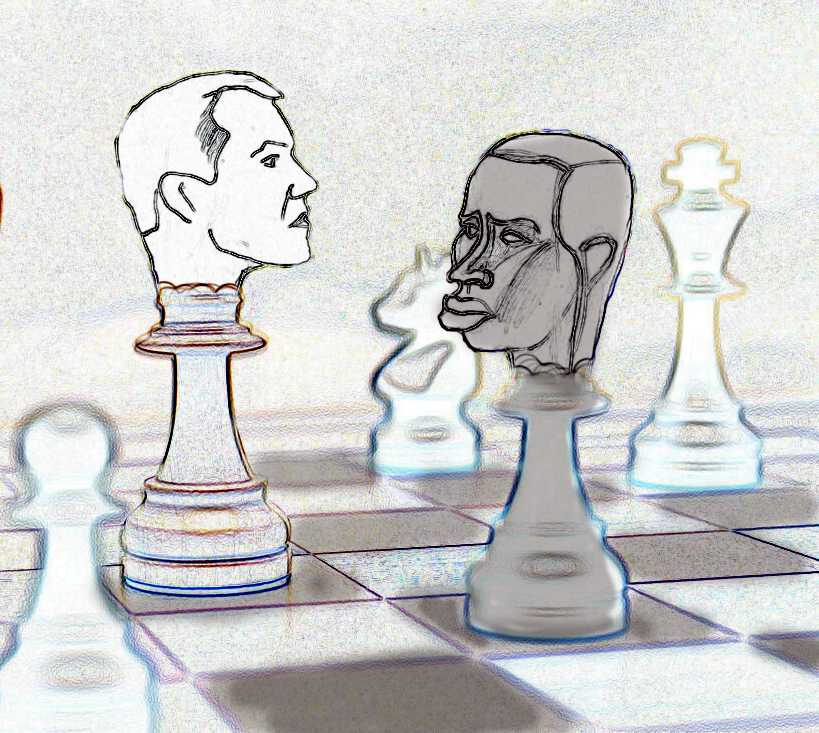Disclaimer: If you do not believe that racism is still heavily embedded in the American culture, then you are going to detest this article.
However, if you have grown frustrated with the reality of racial discrimination, black inferiority versus white superiority and the sanction of racism and hatred in America, then I would advise you to keep reading.
You remember Trayvon Martin. Oscar Grant. Jordan Davis. Marissa Alexander. These are but a few of thousands of black Americans who have been wrongly tried in court, imprisoned and even murdered due to the color of their skin.
The precedence for black inferiority and hatred in America began in our legal system and created a social norm of racial discrimination that is still being sanctioned through our courts and legal system today.
The distinction between white and black, good and evil and human and animal was made clear upon the arrival of the first Africans to America. It was considered law that black Americans were inhuman and evil in the eyes of God, which made it socially acceptable for people to treat black people as such.
Let’s take it back to August 1619 when the arrival of Africans was first documented.
During this time the concept of slavery and owning a person as property had not yet been established. Indentured servitude was the common form of service at the time. Still the courts made a clear distinction between white and black indentured servants.
A. Leon Higginbotham Jr., the first African-American judge of the US District Court for the Eastern District of Pennsylvania in 1964, wrote about this distinction in his book, “Shades of Freedom: Racial Politics and Presumptions of the American Legal Process.”
Higginbotham wrote that though Africans were considered “servants,” there were two things that separated them from white servants—they did not come to serve voluntarily. And they were sold into servitude without a contract stating the duration of their service.
One of the first judicial proceedings that clearly documented this distinction took place in 1630. The case, Re Davis, ruled that Hugh Davis, a white man, was to be beaten in front of a group of Africans for “abusing himself to the dishonor of God and shame of Christianity by defiling his body in lying with a Negro.”
In a nutshell, the court case concluded the following about Africans at the time:
1) Africans are inferior to whites because Davis “defiled” himself by sleeping with one.
2) Africans are less than human and sleeping with one is equivalent to bestiality.
3) Africans are evil in the eyes of God and sleeping with one is dishonoring your body.
By reaching this decision, the courts set a predecent of black inferiority and white superiority in our country, making it socially acceptable and at times even encouraged to treat blacks as less-than human.
Similar laws such as “separate but equal” were further sanctioned in America through the US Supreme Court case Plessy vs. Ferguson in 1896. According to Higginbotham, the Supreme Court’s bold decision to make “separate but equal” laws constitutional acted as a catalyst in perpetuating the legalization of racism throughout this country.
Take the recent ‘stand your ground’ cases. Many court rulings and decisions involving this law clearly depict a degree of black inferiority that is all but subtle.
I don’t have to set the stage for the Trayvon Martin case as I’m sure we’re all familiar with it.
As discussed in an ABC news broadcast roundup of the jurors’ decision, the six jurors focused on answering one finite question in the George Zimmerman trial: in the moment Zimmerman pulled out his gun and shot Martin, did he legitimately fear for his life?
According to the same broadcast, the jury determined that the prosecutor did not provide sufficient evidence proving that Zimmerman was guilty beyond a reasonable doubt.
Were the situation reversed, would Martin have walked away free with the claim that he legitimately feared for his life?
No, he would not have. Had the situation been reversed, Martin would have been imprisoned for life at the age of 17. Why? Because Martin is black. Martin is dangerous. Martin is an animal. And the value of his life is nothing in comparison to others. The verdict in this case so clearly illustrates the continued sanction of racism in this country that it makes my stomach turn.
The same goes for the ‘loud music case’ in which Michael Dunn has yet to be charged for the murder of Jordan Davis. Davis, a 17-year-old boy whose only mistake was riding to a convenience store with his friends and playing loud music.
Dunn used the ‘stand your ground’ defense and claimed that he feared for his life—sounds familiar doesn’t it.
A group of young men were sitting in their car, minding their own business, listening to music and you somehow feel threatened and induced to fear by this?
I cannot fathom a way to rationalize Dunn’s actions so that they makes sense. And yet, the jury is still unable to decide if Dunn is guilty of first-degree murder.
Don’t misunderstand me: the jury was competent enough to convict Dunn on three accounts of attempted murder for shooting at the other three young men in the vehicle. But somehow the ability to grasp the fact that he murdered an innocent young man seems to escape them.
Let me break it down for you and clearly paint a picture of what this trial is revealing about black inferiority and white superiority in America.
Blacks are often likened to unruly, angry and barbaric animals. If you see a group of them together, you should fear for your life because there is no telling what they might do and what they are capable of. Heaven forbid it be a group of black men listening to angry black music. What’s a person to do?!
To truly believe in your heart that America is the land of the free and the home of the brave is to walk in deception of the worse kind. And to go through life blind to the discrimination of black people and other Americans of color is doing yourself a disservice.
Change will never take place if we continue to cover the truth up as though it were a blemish on our country’s otherwise perfect moral character.
Acknowledge to yourself the fact that black inferiority is still sanctioned in our judicial system and still socially perpetuated. Pay attention to the news and to the way your fellow countrymen and women are being treated. And take a stance.
You never know, it might be you who implements a change.






